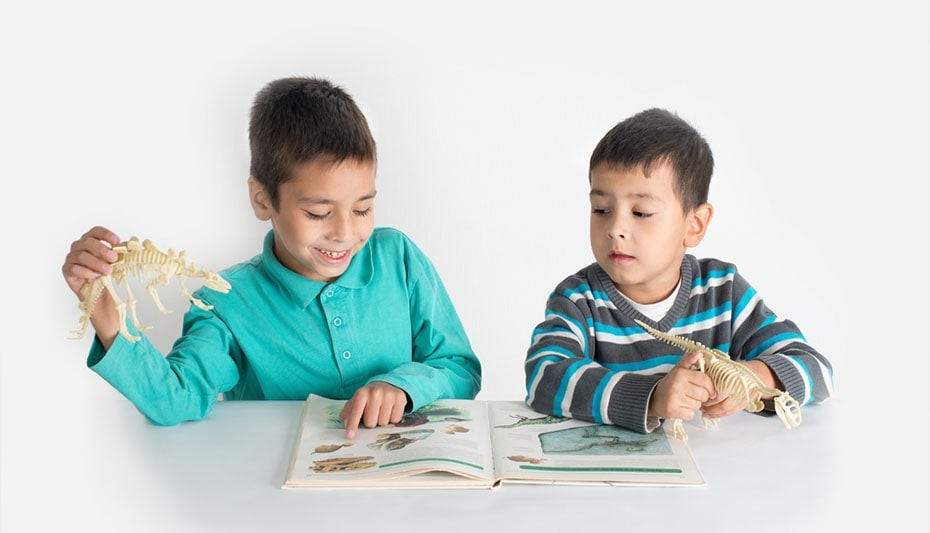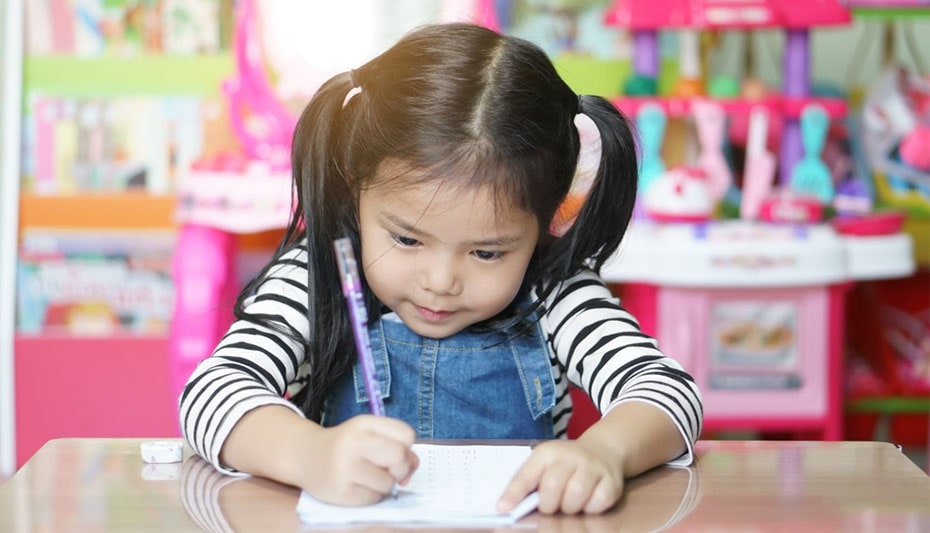
How to Raise A Lifelong Learner Through Reading: 11 No-Fail Tips
One of the best gifts we can give our children is to nurture them to become lifelong learners. We want our children to be curious, to find joy in learning, and to be motivated to learn on their own. We want them to be able to understand, question, and analyse information, rather than just memorise facts.
Research shows that raising little ones as continuous learners has a significant impact on their cognitive health and communication skills. It helps build confidence and enables good socialisation skills. When a child learns to love learning, you can be sure that he/she will grow up to be a successful adult, equipped with the ability and know-how to thrive in a new world.
One of the best ways parents can get their children started on this journey of lifelong learning is to encourage them to read. Reading sparks curiosity about people, places and experiences, and provides explanations about how the world works. The beauty of an exceptional child who loves to read is that his/her curiosity will always be stimulated by the next sentence, page, chapter, author, or book. And it is curiosity which helps children keep seeking and acquiring new knowledge and skills, and ways of understanding the world.
How does reading benefit children?

Reading is one of the most important ways for a child to gain knowledge. Here are more ways it benefits effective and continuous learning in children:
Reading boosts creativity and imagination
Existing in the pages of books are myriad fantasy lands where children meet swashbuckling and inspiring characters and go on adventures with them. Thus, a child’s imagination and creativity are stimulated beyond measure.
Reading strengthens a child’s executive function skills.
These are crucial mental skills (working memory, cognitive flexibility and self-control) that allow kids to manage their thoughts, actions, and emotions in order to get things done.
A child who reads more, disciplines his/ her cognitive functions, retaining more information in his/her mind over time. Studies have shown that voracious little readers will also acquire well-developed concentration skills as they are required to sit still and focus on the story.
This strengthens the child’s working memory and enables him/her to be a more proficient learner, in school and as an adult.
As little ones encounter new words that are pronounced differently but contain the same letter combinations (e.g. though and tough), cognitive flexibility is enhanced in order to understand this difference.
Research also hows that reading helps kids develop self-control and patience.
Reading helps to nurture empathy in your child
By wandering through the pages of a book, children learn that the world is made up of many different people, leading lives different from their own. This makes them more empathetic to people, cultures and situations, and this empathy will benefit children in the future, in their careers and as leaders.
Reading as a tool for continuous learning

The many benefits of reading—especially those related to lifelong learning—are quite clear. Find out how to encourage the passion for reading early in your little ones based on their age, in fun and effective ways, and incorporated in daily routines.
For Toddlers (Ages 1-3):
According to research published in Child Development, the simple act of reading to or with toddlers as young as one year old promotes language and cognitive skills, increased vocabulary, and helps in honing conceptual development.
Child Development
1. Ask questions when you read to your little one
Your one-year-old might be too young to fully understand what you are reading, or respond to your questions yet, and that’s fine. Hearing words helps to build a rich network of literacy-related knowledge in a toddler’s brain, which acts as a spring-board to good language and communication skills, later.
Set aside time to read every day, before naptime and bedtime. Stop once in a while and ask questions, or point at the pictures and comment on them. ("Where's the cat? There he is! That’s a big, black cat!"). You can also get books with bright colours and textures, even noises, that will provide plenty of visual and sensory stimulation to complement and complete the learning process gained from reading at this stage in your child’s life.
2. Encourage your toddler to tell you stories
For older toddlers, add some fun to your reading routine by having your child tell you stories. You could start off by showing a picture. Encourage and prompt your child along the way by asking questions, and help him/her complete the story. Write down what your little one says.
Now comes the fun part. Read the story you have written together.
Your child is likely to be amazed by his/her own creativity and imagination and will be encouraged to think of more interesting tales!
For Preschoolers (Ages 4-5)
Your preschooler might still not be able to read much on his/her own. But, continuing to read to your little one assists your child’s learning in so many ways. You’re continuing to familiarise your child with words and language, and now that your little one is older, you can add more interesting levels of learning to his/her reading experience.
Follow these tips for your preschoolers:
3. Bring along a book
Make reading an essential part of your children’s lives. Next time you’re on the bus or train together or simply waiting for food at a restaurant, pull out a book to read with your child. It’s a much more interactive way to pass time than letting your child play on your iPad while you check your phone.
4. Plan field trips and trips to the museum
Don’t restrict your child’s reading experience to just the written word. Plan field trips and visit museums and festivals as a real-life extension of what your child has read in the book. Your child will associate what he/she read with this experience, and these two combined makes for a more enriching learning process.
5. Guess what will happen next
Here’s a fun way to make reading interactive and to promote cognitive flexibility in your child. While reading to or with your child, stop and ask your child to guess what will happen next.
Write down his/her predictions. Was your child able to guess correctly? Did he/she miss an important detail, which led to an incorrect guess?
These discussions will spur your child to think harder. You will also get to know your child and his/her thinking process a bit better!
6. Let your child choose what to read
Let your child choose what he/ she wants to read. Letting children have choices in their reading material goes a long way in raising life-long readers.
Kids who choose what they read -- be it a storybook, comic, or magazine -- are more engaged with what they are reading and are more likely to retain the information.
For Primary School Kids (ages 6-7):
By now, your children have probably blossomed into proper little bookworms with a voracious appetite for more reading! It’s time to enhance their learning experience further, by encouraging more cognitive processes and skills linked to reading, like the development of critical thinking.

Here are some useful tips to try out with your primary schoolers:
7. Get your child to do book reviews
A review can show how deeply your child has understood the story. While writing a review, the child has to analyse all the information he/she has just read, and think about what to include in the review, and what to leave out.
It doesn’t matter if your child is still learning how to write proper sentences. Your child can always use illustrations to explain his/her thoughts and support whatever he/she is able to write.
By engaging in this little exercise, your child’s thinking skills become sharper because he/she has to reflect on why he/she liked or disliked a book. Eventually, your child’s ability to express his/her thoughts through writing will also strengthen.
8. Rewrite the endings
Another interesting way to get your little reader to think harder is to ask him/her to rewrite the endings of the books he/she just read.
This exercise is great for developing his/her creativity and imagination. Your child also needs to recall the characters and events from the book, so it’s a good way to hone his/her working memory, too.
9. Write a story from pictures
The next time your primary schooler shows you a drawing, add some fun to it. Ask him/her to come up with a story to accompany the drawing.
You’ll be surprised by the results!
Kids will love reading their own stories. Importantly, it involves flexing of their brain muscles to think of ideas and situations that match their artwork. Eventually, they will start thinking of how they can better themselves and create even more interesting stories.
Remember to give your child genuine praise for his/her efforts. Your response or feedback has a strong effect on how hard they will try to become good readers and learners.
10. Fuel your child’s passions
Identify your child’s passions. It could be wanting to know more about dogs, dinosaurs or soccer. If children are interested in something, they will gladly read all about it.
Parents can support this thirst for more knowledge through relevant magazine subscriptions. If your child would much rather read online, there are several educational websites that aim to make learning fun and interactive. For example, children can read up and learn all about nature and animals through the National Geographic Kids website. You can also encourage your child’s passion by scanning newspapers and websites for articles he/she will enjoy reading. Joining a library is also a good way to allow children to find material they love to read.
11. Watch the movie after you have read the book
With so many books being made into movies these days, an interesting way to pique your child’s curiosity is to watch the movie based on the book he/she read.
Ask your child whether he/she enjoyed the movie more or the book, and why. To make things even more absorbing, you and your child can list down the differences between the movie and the book, and compare your lists. This will provide you with insight to how your child views and analyses stories, and what effect they have on him/her.
This exercise also taps on your child’s visual memory and observation skills, and helps him/her to think beyond the written word.
It’s the little things we do that have a big impact on our children’s lives. Encouraging the love of reading is a small, yet incredibly significant step in your child’s journey of learning, through and for life.
References:
- https://www.weforum.org/agenda/2014/11/lifelong-benefits-reading/
- https://www.sciencedirect.com/science/article/pii/S1877042812019659/pdf?md5=51ae6273acb925743ee55019bd4fd15a&pid=1-s2.0-S1877042812019659-main.pdf&_valck=1
- https://www.sciencedirect.com/science/article/pii/S1877042812019659/pdf?md5=51ae6273acb925743ee55019bd4fd15a&pid=1-s2.0-S1877042812019659-main.pdf&_valck=1
- http://www.oprah.com/health/how-reading-can-improve-your-memory

